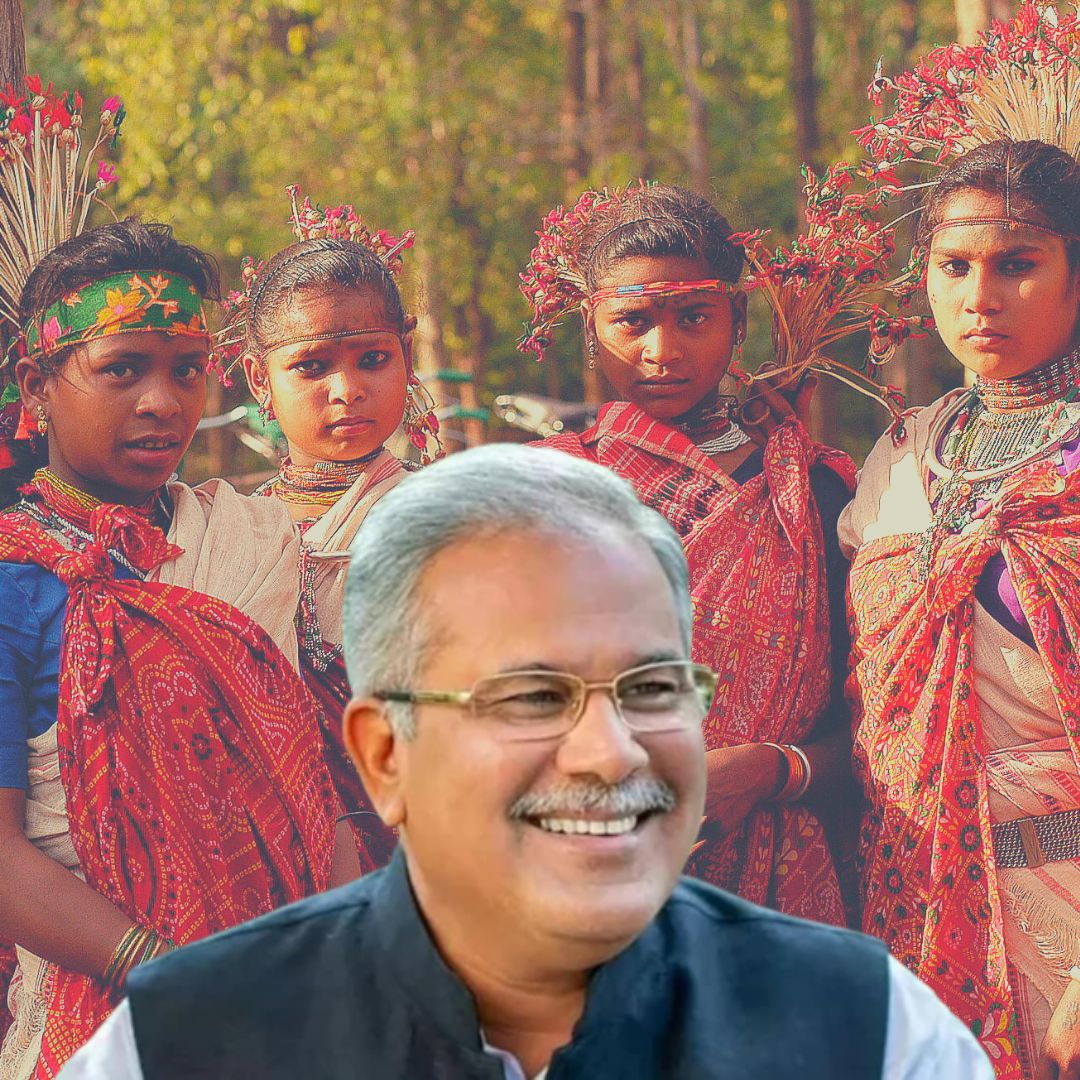
Image Credits: Wikipedia and India Today
PESA Rules: Chhattisgarh Tribal Communities To Gain More Autonomy Through 50% Representation In Gram Sabhas
Writer: Laxmi Mohan Kumar
She is an aspiring journalist in the process of learning and unlearning many things. Always up for discussions on everything from popular culture to politics.
Chhattisgarh, 10 Aug 2022 12:49 PM GMT
Editor : Shiva Chaudhary |
A post-graduate in Journalism and Mass Communication with relevant skills, specialising in content editing & writing. I believe in the precise dissemination of information based on facts to the public.
Creatives : Laxmi Mohan Kumar
She is an aspiring journalist in the process of learning and unlearning many things. Always up for discussions on everything from popular culture to politics.
The new rules will be directed towards enabling the participation of more tribals in the gram sabhas (village assemblies), which would then help create decisions which would protect the interests of the majority of the tribal communities
The new rules incorporated in the Panchayat (Extension to Scheduled Areas) Act (PESA) will empower the tribal communities in Chhattisgarh, said Chief Minister Bhupesh Baghel, who was attending a function organised by the Sarva Adivasi Samaj on the International Day of the World's Indigenous People (also known as World Tribal Day) held at the Pt Deendayal Upadhyay Auditorium.
As per the new rules drafted under PESA, the communities would have more autonomy in the decisions made about their resources, such as the forestlands and water bodies in Chattisgarh.
Enabling Participation Of Tribals In Gram Sabhas
Earlier, although the Panchayat (Extension to Scheduled Areas) Act (PESA) was in force, the tribals were not being benefitted from it. This led the state government to revise the drafted rules, which were then passed in the Cabinet and notified on August 8.
The new rules will be directed towards enabling the participation of more tribals in the gram sabhas (village assemblies), which would then help create decisions which would protect the interests of the majority of the tribal communities. As per the Act, power and authority would trickle down to the gram panchayats, and decisions would be made on par with the beneficiaries.
The Act now accommodates 50 per cent representation from the tribal community in the gram sabhas, out of which 25 per cent would have to be women members, as per a report by the Print.
Committed To Protect Interests Of Tribals
During the event, the Chief Minister enlisted the government's many achievements in empowering the Tribal communities. Commemorating World Tribal Day, he announced a public holiday and stated that lakhs of forest and community forest rights certificates were handed over to the Adivasis and forest dwellers.
He also said that the government continues to look out to empower the tribal communities by establishing more educational and healthcare facilities in the tribal areas and making similar services accessible to them. As a result of the same, the number of reported malaria cases has dropped by 65 per cent in Chattisgarh's tribal areas, and over 300 schools have reopened within the localities.
However, these policies are not devoid of criticism and have received flak from many, including forest and tribal rights activist Alok Shukla, who said that the new rules are not in accordance with the "constitutional system" of tribals. Several publications also reported him saying that such rules would only play with the rights of the residents of areas under the Fifth Schedule (tribal majority areas) and would enable a space that furthers corporate looting.
Also Read: Know About Shubhasish Chakraborty & His Tireless Efforts To Transform An Entire Village In Jharkhand
 All section
All section














